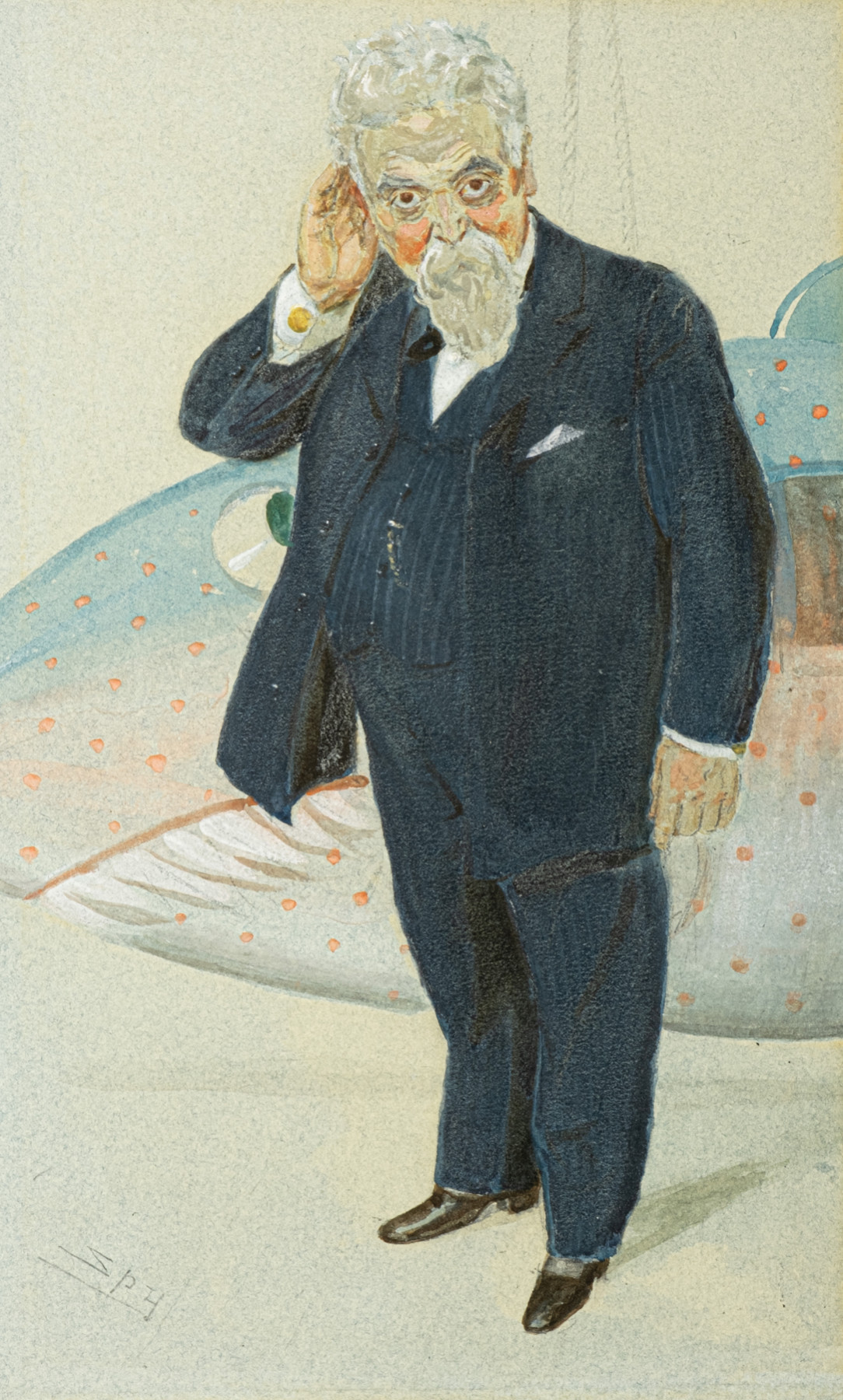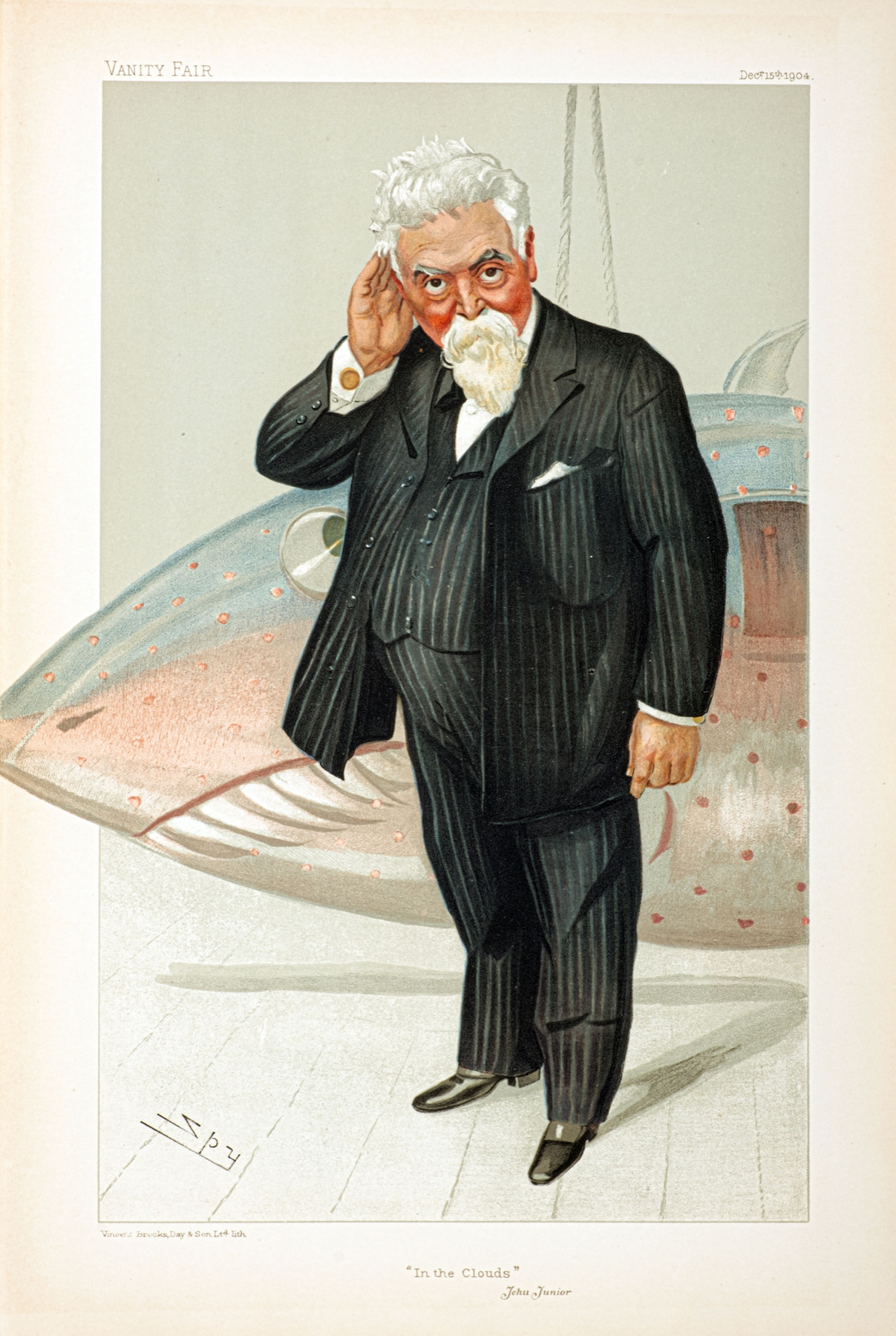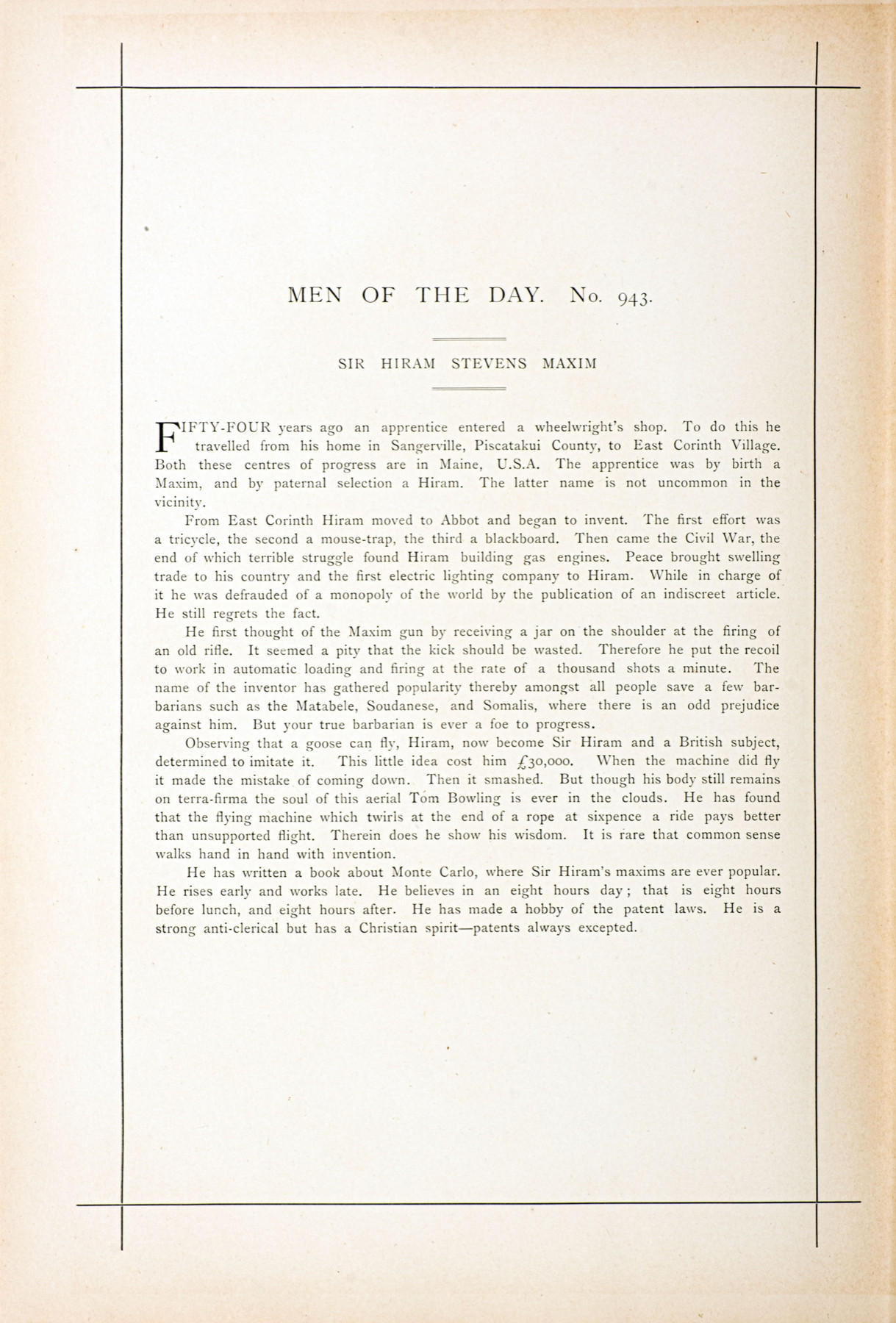


Sir Hiram Maxim (1840-1916) was an American engineer and inventor who found fame as the creator of the Maxim Gun, the world’s first recoil-operated automatic machine gun. Born in Maine, USA, he rose to the position of chief engineer at the United States Electric Lighting Company. In this role, he was involved in installing the first electric lights in a New York City building and was involved in numerous patent disputes with Thomas Edison over the invention of the lightbulb. In 1881, he moved to the London offices of the United States Electric Lighting Company and by 1884 had begun to focus on weaponry, founding the Maxim Gun Company that year. His Maxim Gun was adopted in the British army in 1889 and in the Royal Navy in 1892. Maxim became a naturalised British citizen in 1900 and was knighted the following year.
“Fifty four years ago an apprentice entered a wheelwright's shop. To do this he travelled from his home in Sangerville, Piscatakui County, to East Corinth Village. Both these centres of progress are in Maine, U.S.A. The apprentice was by birth a Maxim, and by paternal selection a Hiram. The latter name is not uncommon in the vicinity.
From East Corinth Hiram moved to Abbot and began to invent. The first effort was a tricycle, the second a mouse-trap, the third a blackboard. Then came the Civil War, the end of which terrible struggle found Hiram building gas engines. Peace brought swelling trade to his country and the first electric lighting company to Hiram. While in charge of it he was defrauded of a monopoly of the world by the publication of an indiscreet article. He still regrets the fact.
He first thought of the Maxim gun by receiving a jar on the shoulder at the firing of an old rifle. It seemed a pity that the kick should be wasted. Therefore he put the recoil to work in automatic loading and firing at the rate of a thousand shots a minute. The name of the inventor has gathered popularity thereby amongst all people save a few barbarians such as the Matabele, Soudanese, and Somalis, where there is an odd prejudice against him. But your true barbarian is ever a foe to progress.
Observing that a goose can fly, Hiram, now become Sir Hiram and a British subject, determined to imitate it. This little idea cost him £30,000. When the machine did fly it made the mistake of coming down. Then it smashed. But though his body still remains on terra-firma the soul of this aerial Tom Bowling is ever in the clouds. He has found that the flying machine which twirls at the end of a rope at sixpence a ride pays better than unsupported flight. Therein does he show his wisdom. It is rare that common sense walks hand in hand with invention.
He has written a book about Monte Carlo, where Sir Hiram's maxims are ever popular. He rises early and works late. He believes in an eight hours day; that is eight hours before lunch, and eight hours after. He has made a hobby of the patent laws. He is a strong anti-clerical but has a Christian spirit - patents always excepted.”